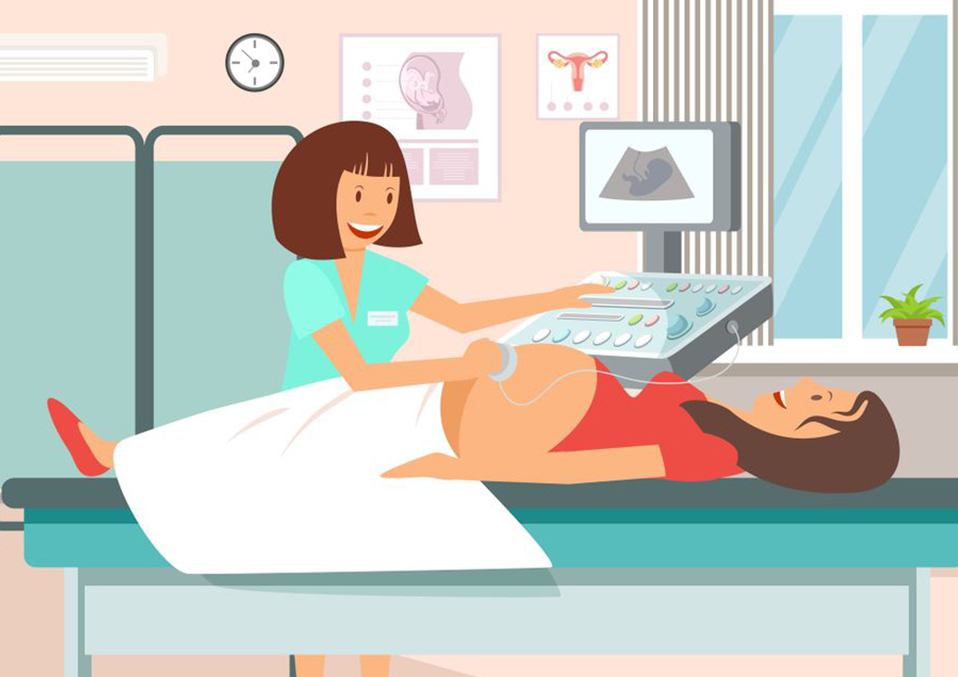
When my wife and I were about to see the ultrasound at 20 weeks of pregnancy, we both are crazy-excited. The most exciting part of the ultra-sound session is to know the sex of our first baby. I will never forget how my mind was blown when I saw how my little one looked like and what the gender was.
The mid-pregnancy is the most awaited part of the pregnancy stage. It is not just a moment of truth for the mom but also the dads. Parents-to-be will have the big chance to sneak a peek at their baby in live ultrasound technology. It can give you and doctor the information if the baby looks healthy or there may be some issues. In this way, you can prepare before the baby arrives.
The ability of the ultrasound?

An ultrasound is a remarkable medical procedure that can produce images that are called the sonograms. It can produce images of the stages of the baby during pregnancy. The classic type of ultrasound is an abdominal ultrasound. The abdominal ultrasound will utilize a conductive gel and a wand-shaped ultrasound machine. Then it captures the images of the fetus, placenta, and umbilical cord.
The second way of doing the prenatal test in the earlier weeks is vaginal ultrasound. Still, the wand-shaped machine is inserted into the vagina. It can get the best look and photo of the uterus and how the baby is developing. In the 20-week pregnancy period, you may not yet need a vaginal ultrasound.
Ultrasound at 20 weeks of pregnancy to find out the gender of your baby

The most exciting part of most parents on the 20-week ultrasound is the time for them to find out the gender of the baby. It may not be readily superficial by your naked eye, but the medical technician can tell you the sex of the baby by looking at the 20-week sonogram. If it’s a girl, her parts will illustrate three lines while the boy will seem to appear as you expect. But sometimes the umbilical cord can be confusing because it may look like a penis in some angle. So to avoid mistakes, let the expert
There are times that the sex of the baby can be unclear at the 20-week ultrasound. Seldom it depends on the baby’s position at the time of the scan. You need to be patient to wait or to come back for another day to discover the sex. Waiting is hard, but it is better to sacrifice a bit than be mistakenly buying clothes of a girl then suddenly be surprised that your little one is a boy.
What to expect from your ultrasound at 20 weeks of pregnancy
The 16-week to 20-week ultrasound can already offer you other screening tests.
A screening test will tell you the chances of your baby from any disorders. The screening results are based on blood samples from the mother and the ultrasound results of the baby.
The diagnostic tests are the process that will tell you if the baby has the disorder. When we say ‘diagnosis,’ it requires extraction of sample cells from the placenta or fetus such as chronic villus sampling (CVS).
Most moms are offered screen during pregnancy not unless she is identified to be in high-risk pregnancy group, and the doctor recommends diagnostic tests.
The feature of screening tests is that it is not accurate. It cast a wide net, and a “positive” result does not report that your baby has the disorder, which means they are at a higher risk of having a disorder. Likewise, a “negative” result can be a lower risk, not that they don’t have it.
Read also: Baking soda gender test
The two specific screenings tests:
Quad Screen test which measures the quantity of the four substances of the blood to determine the risks of the baby for having neural tube defect, Down syndrome, or genetic problems.
Genetic carrier screening. In the ancestral lines, you can be a carrier of a disease. Some cultural groups have a higher risk of ringing certain genetic conditions. For example, Ashkenazi Jews are more likely to take Tay-Sachs. The African Americans to carry sickle cell and Caucasian Americans carry cystic fibrosis. The hereditary carrier screen is often given based on your origin.
Some families opt to have all these screening even though it is not necessary. There are people who want to know everything so they can prepare the highest as possible.
Points to ponder when having an ultrasound at 20-weeks of pregnancy

- You don’t need to guzzle a lot of water. Many moms, especially the first time ones, thought that you need to drink and drink lots of water to see the ultrasound images. It is not a requirement. Call the doctor’s secretary and set your ultrasound test and do not drink gallons of water
- Know that an Ultrasound may come from a 3D tech and 2D tech. These two types of ultrasound will produce different qualities of images. The doctor will be asking you what you want because choosing the higher specs will also require a higher cost. Be aware that the 2D will have a lower quality of image than the 3D which can produce a more intimate catching moment.
- In the ultrasound session, you may be asking a lot of questions but expect that many questions may not be answered in detail or not at all. Do not overreact by being nervous if you throw a question and the technician will say ‘the doctor will be here in a few minutes, he will answer all your questions.’ It is because the doctor is the utmost authority who can provide and explain the depth and detail for you to understand the progress and process.
- Do not be surprised that the technician may ask you to get up and move around. Often the baby inside the womb will hide. The technician will be finding ways for the baby to show the vital parts for the tech to capture the moment. You will be asked to move so the baby may change position and you will be able to see the sex and other parts.
- Be prepared that you may not be getting an abdominal ultrasound. You might be shocked that a vaginal ultrasound will be done. Most technicians do that to check your cervix length to check the risk fo pre-term birth.
Read also:
- How accurate is an expired pregnancy test
- Ultimate guide to how find out baby’s gender during pregnancy
- What to do after a positive pregnancy test best suitable ideas to do


